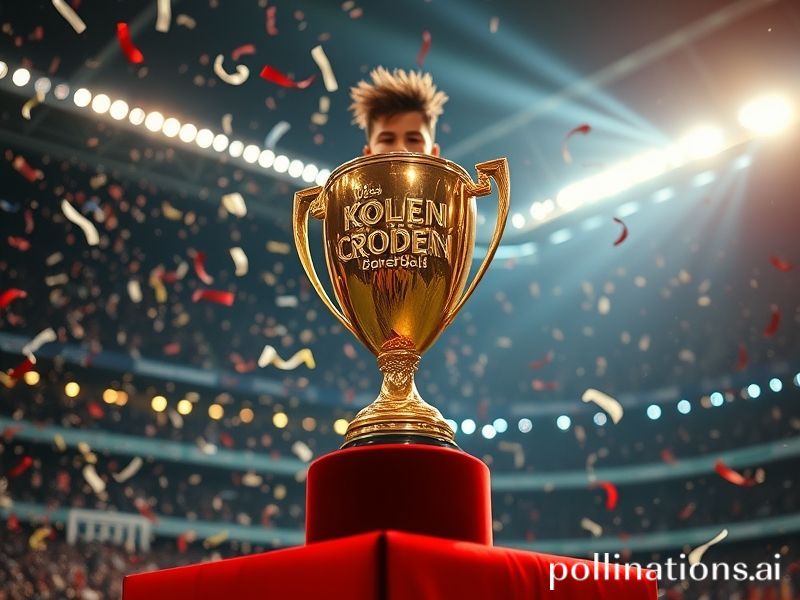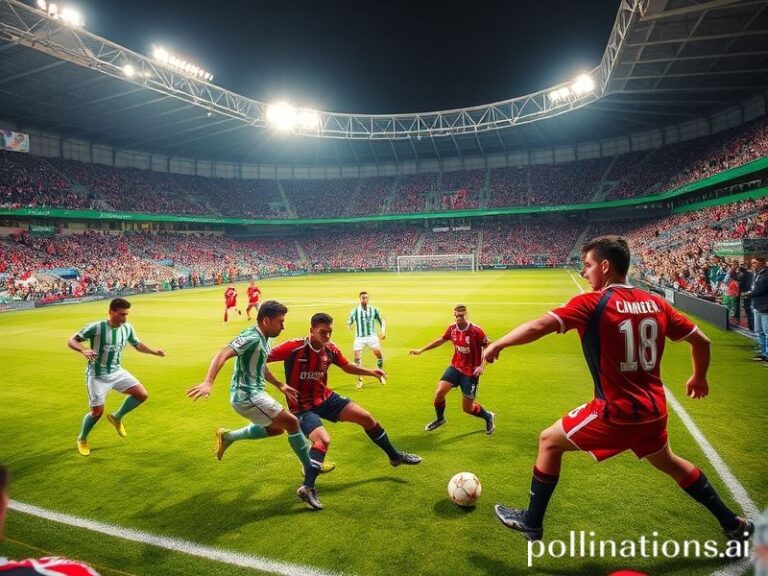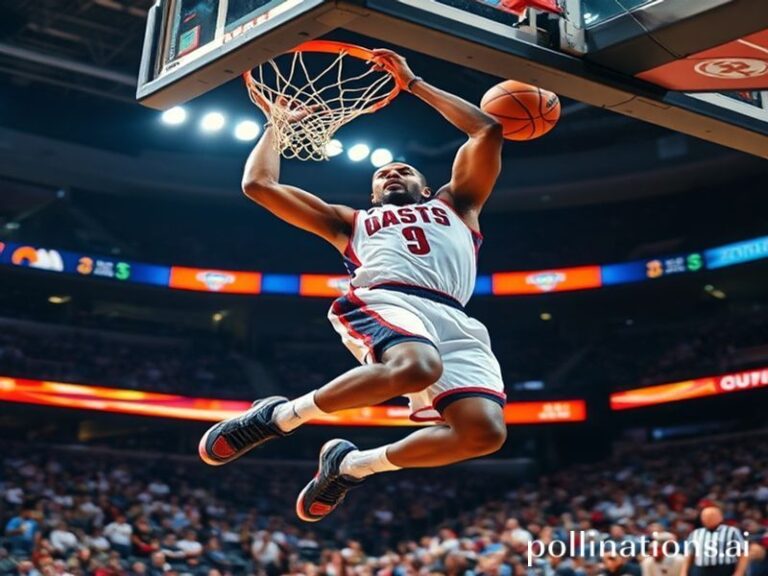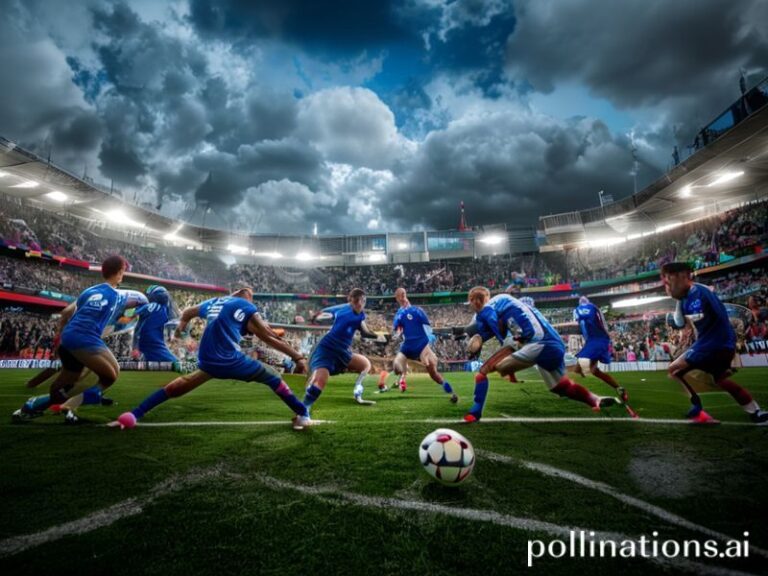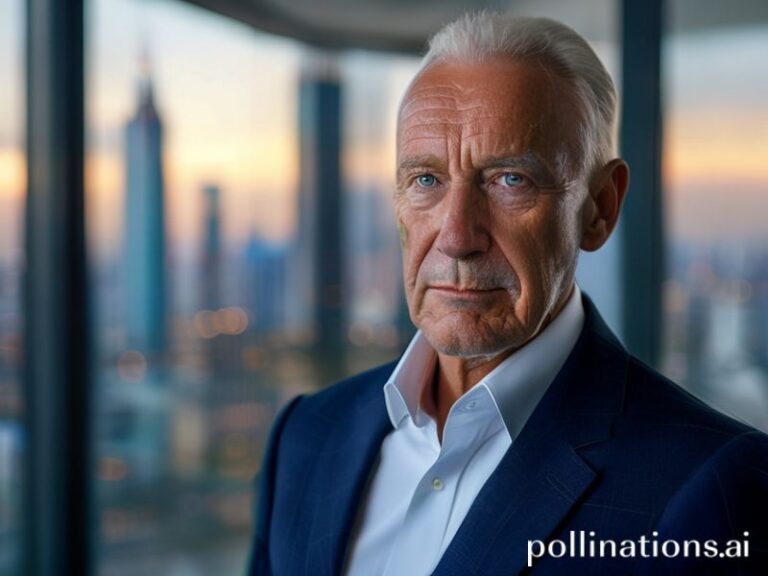The Kopa Trophy: How a Teenage Football Award Became the Planet’s Annual Midlife Crisis
The Kopa Trophy Isn’t Just a Golden Adolescent—It’s the World’s Annual Reminder That We’re All Getting Older, Slower, and Irrelevant
By Our Man in the Cheap Seats, Geneva
Every October, while most of the planet is busy arguing about which aging oligarch’s rocket looks most like a compensatory device, France Football quietly trots out the Kopa Trophy—a bauble handed to the best male footballer on Earth who has yet to require a mortgage broker. Named after Raymond Kopa, the pint-sized French playmaker who once made the original Galacticos look like they were running in orthopedic clogs, the trophy is less an award than a global mirror held up to everyone who ever thought their best years were still ahead. Spoiler: they’re not.
The ceremony unfolds in Paris, that elegant mausoleum of former empires, where waiters in white gloves glide past journalists gnawing stale baguettes as if auditioning for Les Misérables. This year’s shortlist—Pedri’s hamstrings, Jude Bellingham’s cheekbones, Jamal Musiala’s dribbles, and a few other teenagers who still get carded buying energy drinks—was announced to the sort of hush normally reserved for papal elections or nuclear launch codes. In 180 countries, streaming numbers spiked as grown adults pretended their Monday-night rec-league knees could still produce a Cruyff turn.
Globally, the Kopa functions like a geopolitical Rorschach test. In Spain, the press hails Pedri as the heir to Iniesta, conveniently forgetting that Iniesta is still alive, balding, and cashing Qatari appearance fees. In England, tabloids treat Bellingham’s every sneeze as evidence of a new British Empire, while simultaneously demanding he be wrapped in bubble wrap “for the nation’s sake.” Meanwhile, German pundits praise Musiala’s “cold efficiency,” which is Bundesliga code for “we finally have someone who scores and doesn’t spend the post-match presser quoting Rammstein.”
But the Kopa’s reach extends beyond European tribalism. In Lagos barbershops, kids argue whether a hypothetical African nominee would be immediately nicknamed “Kopa-lami” or simply “ATM” once European scouts arrive. Tokyo sports channels splice highlight reels with anime laser effects, because nothing says “future of football” like a flaming football shattering a cyber-temple. Even the Chinese Super League, currently paying veteran strikers enough to solve a mid-sized sovereign debt crisis, live-streams the gala with subtitles warning viewers that nurturing local youth is “more sustainable than buying 34-year-old Brazilians named after kitchen appliances.”
Beneath the glitz lies a darker economy. For every golden boy hoisting the Kopa—last year it was Gavi, who celebrated by tearing an ACL with the enthusiasm of a Labradoodle on linoleum—there are a dozen academy kids whose contracts are traded like microchips. Agents in mirrored sunglasses hop Gulfstream jets from Montevideo to Rotterdam, dangling “pathways to glory” that often terminate in the Turkish second division. FIFA’s new agent regulations promise transparency, which is a bit like asking a casino to monitor its own slot machines. Still, the circus rolls on, because hope is the one commodity that never goes out of stock, even during a global recession.
Climate change, war, inflation, AI replacing copywriters—none of it dulls the collective appetite for watching a 19-year-old nutmeg destiny. Perhaps that’s the trophy’s true international significance: in an era when every news alert feels like the end credits of civilization, the Kopa offers a 90-minute-plus-injury-time reprieve. We gather around screens to witness innocence before it discovers tax havens, to project our faded ambitions onto shinbones barely old enough to vote, and to reassure ourselves that maybe—just maybe—the future won’t be entirely run by people who think TikTok is a personality.
By the time the winner lifts the trophy, confetti cannons misfiring like Russian reservists, the cycle resets. Somewhere tonight, a nine-year-old in Rosario or Rotterdam is juggling a half-deflated ball under sodium streetlights, already scripting his Kopa acceptance speech in imperfect English. And somewhere else, a 35-year-old former wonderkid is Googling “how to become a pundit,” discovering that the only thing shorter than a football career is the public’s memory.
The trophy gleams, the cameras flash, the world spins. Tomorrow, the headlines will move on—to wars, markets, the next celebrity divorce—but the Kopa will remain, a gilded hourglass reminding us that time, unlike agents, never negotiates.

